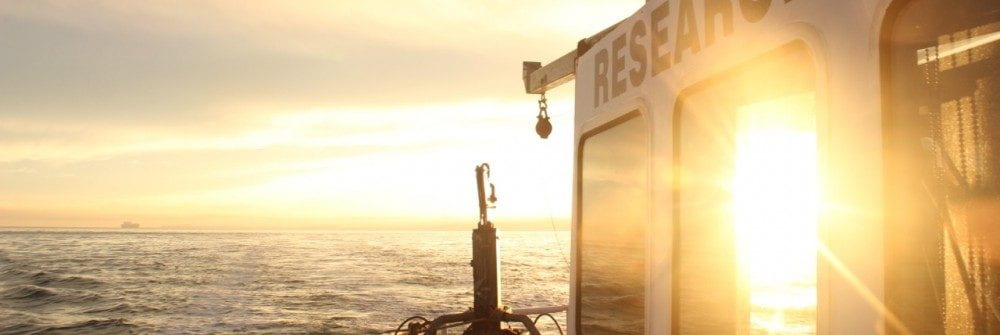Course descriptions are from UW Oceanography
OCEAN 230 Rivers and Beaches (3 cr/5 cr)
Nittrouer
Introduction to Earth surface environments, the processes that shape them, how humans affect them and are affected by them. Field trips examine mountains, rivers, deltas/estuaries, beaches, and environments beyond. Focus on linkages between these environments to illustrate coupling between landscapes and seascapes. Co-taught with David Montgomery. Offered jointly with ESS 230.
Ocean/ESS 230 class web page (UW ESS site)
Check out this video from the 2016 Rivers and Beaches field trip on the RV Thompson:
OCEAN 320 Coastal Oceanography (5 cr)
Ogston
The goal of this 5-credit class is to give students an understanding of coastal and estuarine processes, focusing on their geology and water circulation, with a brief overview on how these shape chemical and biological systems. The lectures start with basic principles that define the structure of coastal environments, the fluid and sediment force balances, and then work toward their application in coastal systems. Later lectures cover applied topics of concern to human populations living at the coast and using its resources, such as sea-level rise and harmful algal blooms. Lectures will be complemented with a weekly laboratory session in which the concepts presented in lecture are integrated through experimental activities, data analysis projects and student-led reading and discussion. Co-taught with Parker MacCready.
Ocean 320 full course description (UW Oceanography site)
ESS 456 Depositional Environments (4 cr)
Nittrouer & Fricke
This course covers a broad range of depositional environments from terrestrial to deep marine, with lectures focusing on individual depositional settings and processes, as well as the linkages between environments. Weekly labs introduce tools and techniques to examine sedimentary structure, grain size, organic content, and rate of sediment accumulation in modern sediment cores. Field trips explore some of the exceptional modern depositional environments and ancient outcrops of western Washington; including the Columbia River, Washington coast, and Strait of Juan de Fuca, as well as the Blakeley Formation on Bainbridge Island. Such field-based learning provides an opportunity to see how the environments and dynamics discussed in lecture and lab are preserved in the geologic record.
OCEAN 492 Marine Sedimentary Processes: Elwha Dam Removal Impacts (15 cr)
Ogston
The biggest dam removal in U.S. history is underway on the Olympic Peninsula’s Elwha River, and major changes are happening in the marine environment. One of the effects of this unprecedented restoration effort is the input of millions of tons of sediment into the Strait of Juan de Fuca. This apprenticeship gives you the opportunity to get involved in an ongoing research project focused on the fate of this material, while learning about geologic processes and gaining valuable scientific research experience!
15-credit apprenticeship includes:
- Lectures on local geology, river systems, and coastal environments
- Instruction in laboratory and research techniques
- Two science cruises to the Elwha Delta
- Camping trip to the Elwha watershed with hikes to the river and reservoir beds
- Weekly scientific readings and informal discussions (fuel for the final paper)
- Individual research projects on course-related topics of students’ choosing
Plan on learning about and experiencing local environments, practical science techniques, and a truly historic restoration project happening NOW.
Interested? Contact Dr. Andrea Ogston, ogston@ocean.washington.edu; See class description on the FHL 2016 course offerings page.
Financial aid is available for this course.
Check out this video created by Ian Miller during a class cruise to the Elwha River in May 2014:
OCEAN 541 Marine Sedimentary Processes (3 cr)
Ogston
Investigates fundamental process of marine sedimentation, including equations characterizing boundary-shear flows, initiation of grain motion, bedload and suspended-load transport, and sediment accumulation. Applies concepts to sediment dispersal in rivers, deltas, estuaries, beaches, continental shelves, slopes, and rises, with emphasis on the relationships between active processes and resulting deposits.
Ocean 546 MG&G: Continental-Margin Sedimentation (3 cr)


